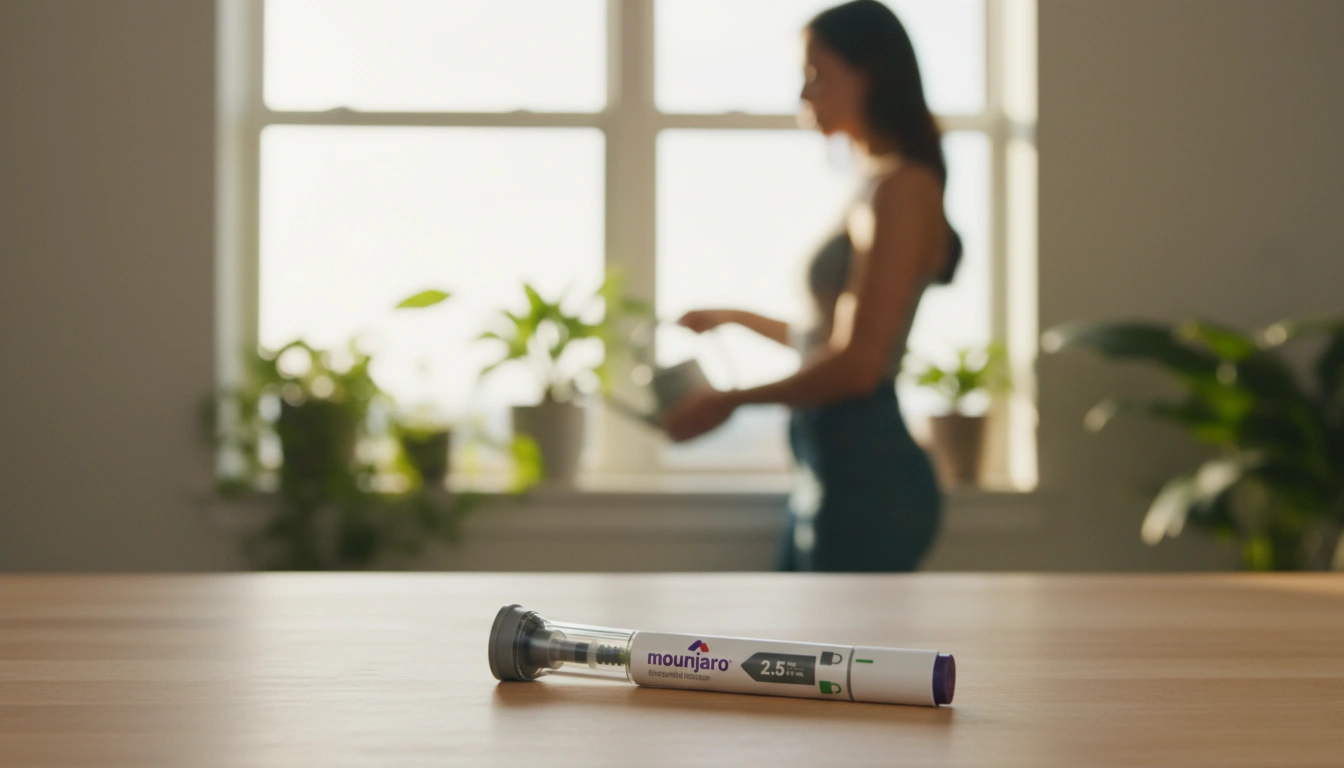Can You Drink on Mounjaro Injections? What You Need to Know

Introduction
The increasing prevalence of obesity and type 2 diabetes has prompted many to seek effective medical solutions. Mounjaro, a medication containing tirzepatide, has emerged as a frontrunner in the realm of weight management. As a dual-action GLP-1 receptor agonist, it helps regulate appetite and manage blood sugar levels. However, when considering lifestyle adjustments—such as drinking alcohol—it’s essential to understand how these choices may impact your health and the effectiveness of your treatment.
Alcohol is a staple in many social settings, and its effects on health can vary widely. For those using Mounjaro, the intersection of medication and alcohol raises important questions. Can you drink while on Mounjaro? What are the consequences, if any? This blog aims to provide clarity on these issues, drawing from current research and professional insights.
We’ll cover several key areas, including:
- An overview of Mounjaro and its function.
- The effects of alcohol on the body, particularly in relation to diabetes.
- How alcohol could potentially affect the side effects of Mounjaro.
- Recommendations for those who choose to drink while on this medication.
Throughout this discussion, our goal is not only to inform but also to empower you to make educated decisions regarding your health journey.
Have you ever wondered about the impact of alcohol on your weight loss journey, especially when using medications like Mounjaro? You’re not alone. As many individuals navigate the complexities of weight management and diabetes, questions about dietary choices, including alcohol consumption, often arise. With the increasing popularity of Mounjaro—a medication designed to assist in weight loss and blood sugar control in adults with type 2 diabetes—understanding how alcohol interacts with this treatment is crucial.
In this blog post, we will explore the relationship between Mounjaro injections and alcohol consumption. We will delve into the effects of alcohol on the body while on Mounjaro, potential side effects, and practical tips for those considering a drink. By the end of this article, you’ll have a clearer understanding of whether you can safely enjoy alcohol while using Mounjaro and how to do so responsibly.
Understanding Mounjaro
Mounjaro, or tirzepatide, is a medication approved for managing blood sugar levels in adults with type 2 diabetes and is also utilized for weight loss. It works by mimicking the action of two hormones, GLP-1 and GIP, which play crucial roles in appetite regulation and glucose control. By helping the body feel fuller while simultaneously slowing down the digestive process, Mounjaro enables individuals to consume fewer calories, supporting weight loss goals.
How Mounjaro Works
Understanding how Mounjaro operates in the body is fundamental to grasping the implications of alcohol consumption while on this medication. Mounjaro acts on the brain’s appetite control center, signaling feelings of fullness and reducing cravings. Additionally, it increases insulin sensitivity and lowers glucose production in the liver, which is particularly beneficial for those managing diabetes.
As we delve deeper into the effects of alcohol, keep in mind that Mounjaro’s ability to stabilize blood sugar could be influenced by alcohol intake, making it vital to approach drinking with caution.
The Effects of Alcohol on Diabetes
Alcohol’s effects on the body, especially for those with diabetes, can be multifaceted. When considering whether to indulge in alcoholic beverages while using Mounjaro, it’s essential to understand these interactions.
Blood Sugar Fluctuations
Alcohol can lead to fluctuations in blood sugar levels. While moderate consumption may not significantly impact some individuals, excessive drinking can lead to hypoglycemia, especially when combined with medications that lower blood sugar. This is particularly concerning for those taking Mounjaro, as the medication’s purpose is to maintain stable blood glucose levels.
- Hypoglycemia: Symptoms include dizziness, sweating, confusion, and, in severe cases, loss of consciousness. Monitoring your blood sugar levels is crucial if you choose to drink.
Impact on Weight Loss Goals
For anyone on a weight loss journey, alcohol presents certain challenges. Alcoholic drinks are typically high in calories and low in nutritional value. Choosing to drink can counteract the calorie deficit necessary for weight loss, leading to potential setbacks in achieving your goals.
Increased Side Effects
Mounjaro can cause gastrointestinal side effects, such as nausea, vomiting, and diarrhea. Alcohol can exacerbate these issues, making drinking a less desirable choice while on this medication. The combination may lead to increased discomfort and could hinder your overall experience with Mounjaro.
Can You Drink Alcohol While Taking Mounjaro?
The short answer is that while there is no direct drug interaction between Mounjaro and alcohol, caution is advised. The potential for increased side effects and blood sugar fluctuations makes it essential to approach alcohol consumption thoughtfully.
Recommendations for Drinking Alcohol on Mounjaro
If you decide to drink alcohol while on Mounjaro, here are some guidelines to consider:
- Moderation is Key: Limit your alcohol intake to no more than one drink per day for women and two drinks per day for men. This helps minimize the risk of adverse effects.
- Stay Hydrated: Alcohol can lead to dehydration, particularly in conjunction with Mounjaro’s gastrointestinal side effects. Ensure you drink plenty of water before, during, and after consuming alcohol.
- Eat a Balanced Meal: Consuming alcohol on an empty stomach may exacerbate side effects. Eating a meal rich in protein, fiber, and healthy fats can help stabilize your blood sugar and reduce discomfort.
- Monitor Your Body’s Response: Pay attention to how your body feels after drinking. If you experience increased nausea, dizziness, or other uncomfortable symptoms, consider reducing your alcohol intake or avoiding it altogether.
- Consult with Your Healthcare Provider: Before making any changes to your alcohol consumption habits, discuss your situation with your healthcare provider. They can offer personalized advice based on your health status and treatment plan.
Conclusion
Navigating the complexities of alcohol consumption while on Mounjaro can be challenging, especially for those managing weight and blood sugar levels. While moderate drinking may be possible for some, it is essential to understand the risks and make informed decisions.
At TrimRx, we believe in a personalized approach to health and wellness. If you are considering Mounjaro or have questions about alcohol consumption in relation to your treatment, we encourage you to take our free assessment quiz. This will help determine the best course of action for your weight loss journey.
In addition to personalized medication, we also offer quick-access supplements like GLP-1 Daily Support and Weight Loss Boost to support your overall wellness during your weight loss journey.
FAQ
Can I drink alcohol while taking Mounjaro?
While there is no direct interaction between Mounjaro and alcohol, it is advisable to drink in moderation and consult your healthcare provider for personalized advice.
What are the risks of drinking alcohol on Mounjaro?
Drinking alcohol can increase the risk of gastrointestinal side effects and fluctuations in blood sugar levels, potentially undermining your weight loss efforts.
How much alcohol is safe to consume on Mounjaro?
It is generally recommended to limit alcohol intake to one drink per day for women and two drinks per day for men.
What should I do if I experience side effects after drinking alcohol on Mounjaro?
If you experience increased nausea, dizziness, or other uncomfortable symptoms, consider reducing your alcohol intake and consult your healthcare provider.
How can I manage my alcohol intake while on Mounjaro?
Stay hydrated, eat balanced meals, monitor your body’s response, and consult with your healthcare provider for personalized advice.
Remember, your health is a partnership, and together, we can navigate the best path for your wellness journey with Mounjaro.

Transforming Lives, One Step at a Time
Keep reading
What Happens If You Stop Taking Mounjaro?
If you stop taking Mounjaro, your appetite will return to its pre-medication baseline within a few weeks, and most people regain a substantial portion…
Mounjaro Maintenance Dose: What Works Long-Term
Your Mounjaro maintenance dose is the dosage you stay on after reaching your weight loss goal, and it’s not always the same dose you…
How Long Can You Take Mounjaro?
You can take Mounjaro for as long as it continues to be effective, well-tolerated, and medically appropriate. There is no established maximum treatment duration….



